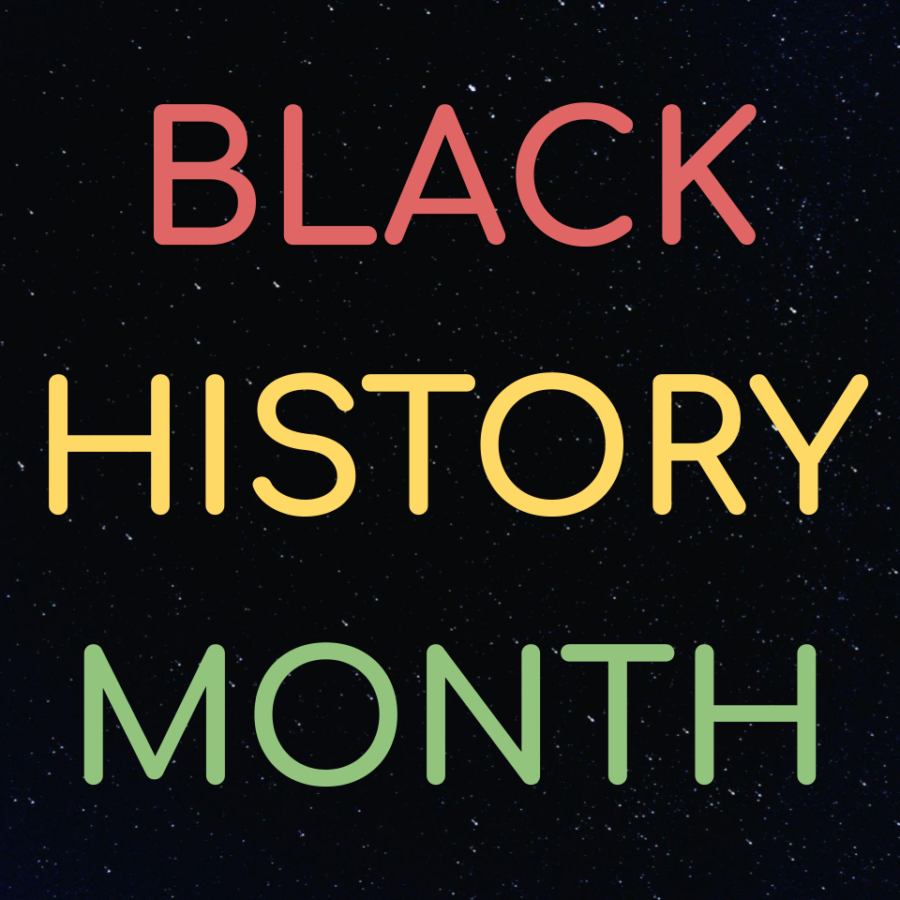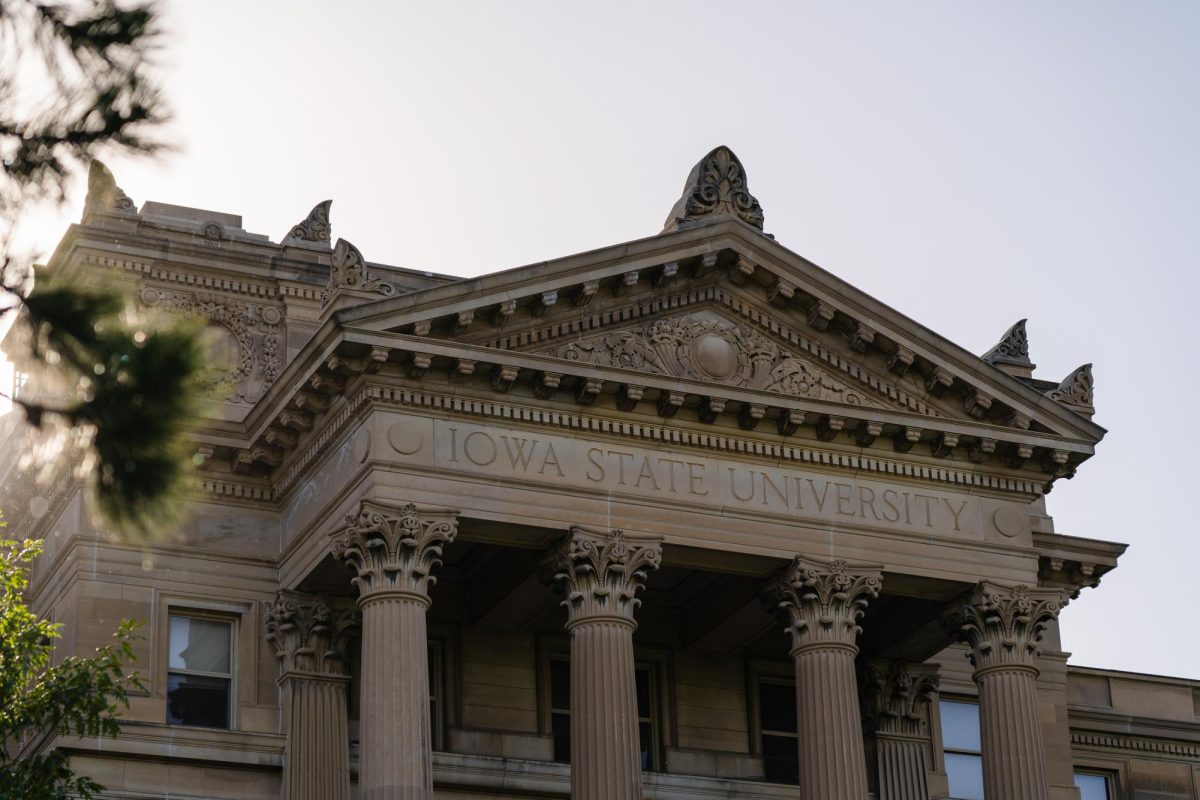Learning and growth during Black History Month
Iowa State students focused on continuing difficult conversations while discussing Black History Month.
January 31, 2022
According to some Iowa State students, Black History Month can be a time for growth and gaining a broader perspective on history.
Alyannah Buhman, a senior in criminal justice and director of Diversity and Inclusion for Student Government, said, “Learning is a lifelong process. We are always going to be learning. We are always going to be growing, regardless of whether we’re in college, in a graduate program, in elementary school or in the career field.”
Buhman suggested that, though Black History Month might make Black history appear separate from U.S. history, it should be treated as American history itself. She also said that she appreciated the focus on Black history that comes with the month, as it is something that she feels is neglected in many students’ education, at least until they come to college.
“I grew up in rural northwest Iowa. I have two biracial siblings, but I have two white parents, so my cultural understanding of African American history was very limited until I came to Iowa State,” Buhman said.
Edward Oyetola, a senior in aerospace engineering, said, “Black history has been taken away. It has been neglected, and I feel that Black History Month is a time of celebration, because it’s trying to bring that history back, trying to emphasize it, trying to bring it back into the culture, and having a better understanding across all ethnicities.”
Kailee Hopkins, a senior in kinesiology and health and president of the Iowa State NAACP, said that “learning [Black] history is really important and can help others… understand anger, understand tragedy, sadness, that comes from the African-American community and also the happiness that comes from it- seeing how far we’ve come.”
Those interviewed expressed a desire for more education on Black history from both before and after the Civil Rights Movement.
Oyetola thought that “a lot of people miss out on a lot of the really neglected history, like about literature, the sciences.” He gave the writer Zora Neale Hurston, the scientist George Washington Carver and the scholar Alain LeRoy Locke as examples of influential pre-Civil Rights Era figures. He added that, even with regards to civil rights, there is a diverse history.
“[There were] so many more people who were involved, far more than Martin Luther King. Way before he was even born, there was civil rights [activism]. There was civil rights activism even when slavery was still in place,” Oyetola said.
While the semester is already underway, students can gain a broader perspective by taking certain classes at Iowa State in the future. Hopkins and Oyetola both recommended Introduction to African American Studies, and Oyetola also recommended Africana Religions and Strategies of Resistance: From Slavery to Hip-Hop & Black Lives Matter.
Buhman said that U.S. diversity courses, which Iowa State students are required to take, are a good way for students to broaden their knowledge of U.S. history in general.
“You can take a dance class… I actually took a dance class my freshman year and I loved it. There is some stuff in American history [classes], but you do kind of have to broaden your horizons,” Buhman said.
Though they may not necessarily fulfill the U.S. diversity requirement, Buhman, who is minoring in sociology, also recommended sociology classes.
“There are certain sociology classes that talk about the perspective of not just the individual, but the institution and [society], and how those affect the individual,” she said.
Institutions, specifically health institutions, relate to the theme for 2022’s Black History Month, “Black Health and Wellness,” as declared by the Association for the Study of African American Life and History.
According to the CDC, “Race and ethnicity are risk markers for other underlying conditions that affect health,” meaning that, while a person’s race and ethnicity themselves may not determine their vulnerability to an illness or condition, other factors that are tied to their race or ethnicity, such as “socioeconomic status, access to health care, and [occupation],” do.
“With COVID, that hit the African American community so hard, really looking into why is important because there’s families of many people living together in close-knit homes. Obviously, if one contracts COVID, they’re all going to contract COVID,” Hopkins said.
Additionally, during the pandemic, Hopkins said that Black people have had to simultaneously deal with the stress of isolation and the stress of events such as the murders of George Floyd and Ahmaud Arbery. Oyetola also talked about mental health in the Black community.
“Historically speaking, the Black community, we kind of drew away from talking about health [and] mental health problems that people have. We kind of shy away from it. But I think now it’s getting more open. People are understanding it more,” he said.
Last semester, Iowa State returned to fully in-person classes after spending previous semesters since the outbreak of COVID-19 mostly online. Oyetola talked about how some Black students experienced this transition and felt there was a need for more understanding from some instructors.
“Especially for students [in their] freshman and sophomore years, and they’ve never spent college time in a classroom… Especially Black students, coming from certain neighborhoods, they just didn’t have the same resources at their high school as some of the white students, or even some of the more privileged Black students… Coming from an already marginalized high school, then online and now trying to fit back into the college experience that they really haven’t had—I think that professors really need to understand that a lot more,” Oyetola said.
Discussing issues related to race and Black history, especially in the context of an already polarizing pandemic, may make some feel uneasy.
“These topics are going to be uncomfortable—for anybody. Not just for white students. It’ll be uncomfortable for a lot of students of color, because it’s a very raw and very emotional topic. It’s going to be uncomfortable for [older] adults, because they grew up in a time very different than ours. These topics… are not easy, especially if it’s with friends, and with family and with loved ones,” Buhman said.
Buhman talked about a German foreign exchange student that her family once hosted, suggesting that the way German students learn about the Holocaust is as an example for how Americans should learn about slavery.
“Although it’s uncomfortable, that is one thing that they emphasize… ‘Let’s not repeat history, because of all of the bad that’s happened,’” she said.
Buhman recommended the 1851 speech “Ain’t I A Woman?” by Sojourner Truth, the 2017 novel (and also 2018 film) “The Hate U Give” by Angie Thomas, and the 2021 anthology “Four Hundred Souls,” edited by Ibram X. Kendi and Keisha N. Blain, as works related to Black history that she recommended. She also recommended the Office of Multicultural Student Affairs as a resource to learn more about Black History.
Hopkins recommended the 2016 book “White Rage” by Carol Anderson, the 2016 film “Hidden Figures,” the 2019 film “Just Mercy” and Emmanuel Acho’s YouTube channel.
Oyetola recommended the 2010 book “The Other Wes Moore” by Wes Moore, the 2014 memoir “Just Mercy” by Brian Stevenson, the 2016 documentary “I Am Not Your Negro” and the 2019 documentary “ReMastered: The Two Killings of Sam Cooke.”







